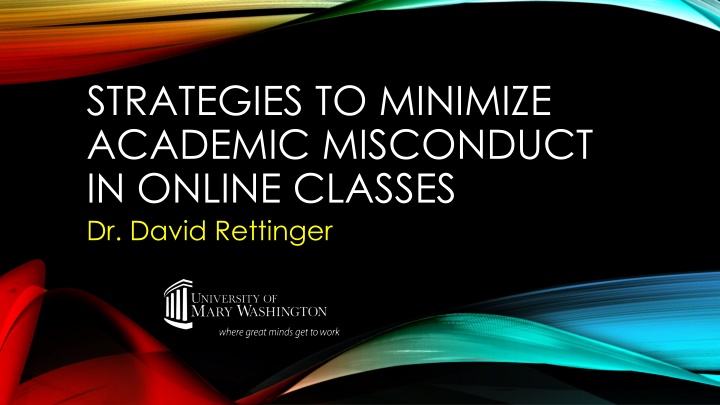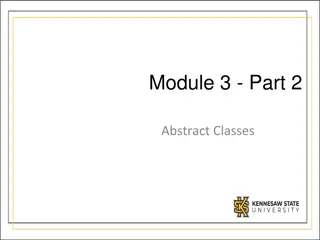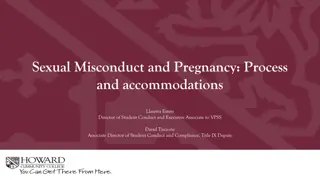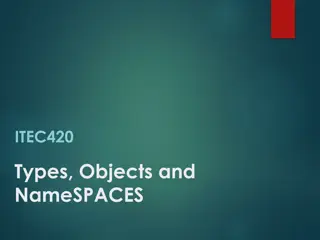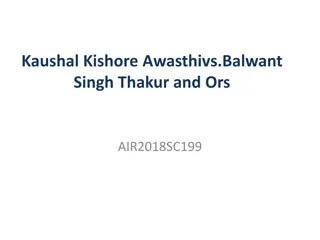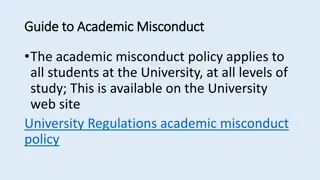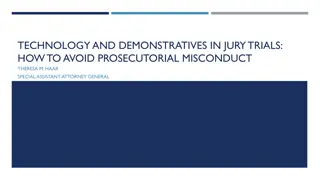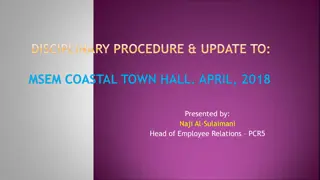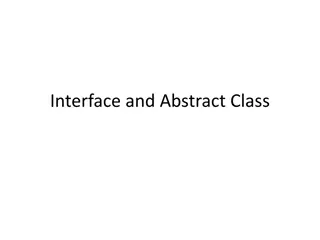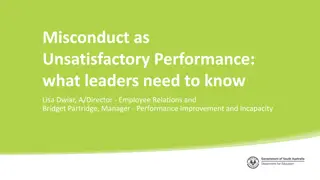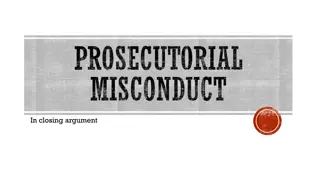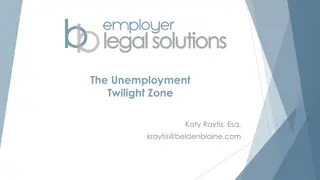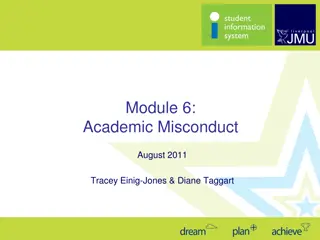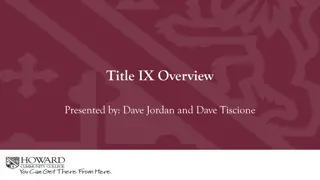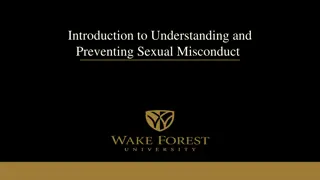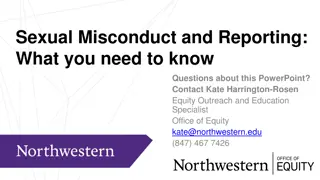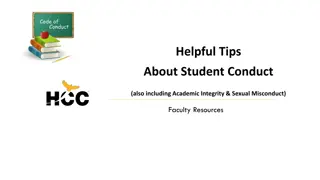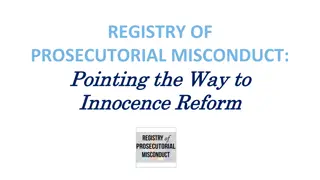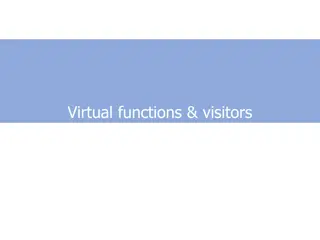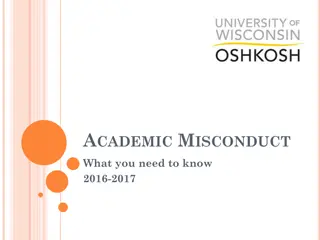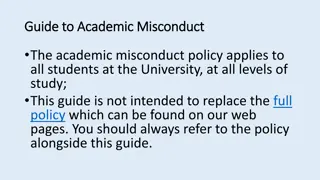Effective Strategies to Prevent Academic Misconduct in Online Classes
Strategies to minimize academic misconduct in online classes include addressing student attitudes, changing assignments frequently, giving creative assignments, and fostering intrinsic motivation. Practical tips such as making it harder to cheat and requiring drafts can also help. Discussion on integrity, trust, and open communication with students are key elements in preventing cheating. Encouraging a culture of honesty through honor codes and continuous dialogue on integrity can contribute to a positive academic environment.
Download Presentation

Please find below an Image/Link to download the presentation.
The content on the website is provided AS IS for your information and personal use only. It may not be sold, licensed, or shared on other websites without obtaining consent from the author.If you encounter any issues during the download, it is possible that the publisher has removed the file from their server.
You are allowed to download the files provided on this website for personal or commercial use, subject to the condition that they are used lawfully. All files are the property of their respective owners.
The content on the website is provided AS IS for your information and personal use only. It may not be sold, licensed, or shared on other websites without obtaining consent from the author.
E N D
Presentation Transcript
STRATEGIES TO MINIMIZE ACADEMIC MISCONDUCT IN ONLINE CLASSES Dr. David Rettinger
WHY STUDENTS CHEAT They feel unprepared/unable to do the assignment It s easier to cheat than to do the work with integrity They don t value the work, only the outcome They feel pressure toward jobs, grades, etc. They don t think they ll be caught
TWO APPROACHES TO PREVENTION Philosophical relies on changing attitudes toward school and the assignment Logistical relies on making cheating seem not worth it
ADDRESSING STUDENT ATTITUDES I can t do it Build self-efficacy Reduce the stakes Distribute control of the situation Scaffolding I don t care or This assignment isn t important Explain your process Give students choice/control Show that you care
PRACTICALITIES Make it harder to be dishonest Change assignments frequently Require drafts Make assignments more individualized Make it easier to detect cheating Exam versions Plagiarism searches Drafts
GENERAL STRATEGIES Explain your thinking Give students choices Repeated, low-stakes testing Give creative assignments Classroom honor codes Talk about it!
THINGS TO DO TOMORROW Review the Honor Constitution Things have changed over the years. Talk about Honor with your classes if you only do one thing on this list, please do this Bookmark key resources, including the Honor Council Website Attend an Academic Integrity workshop Require your students to pledge all work for grades. Ideally, have them write it out and sign it. Know and talk with your faculty honor advisor. Trust your students, and communicate that trust to them. Review and rewrite the Honor section of your syllabi. Write positively about integrity, rather than threaten dire consequences.
DISCUSSING INTEGRITY At the outset Communicate your investment Empathy/harm COMMUNITY! Challenge self-concept Foster intrinsic motivation for the course As the course progresses Intrinsic motivation for assignments Support self-concept; self-efficacy
MULTIPLE CHOICE STRATEGIES Frequent, low- stakes quizzes Student generated questions
STRATEGIES FOR WRITTEN WORK Public assignments Blog posts Magazines Self-directed topics Personalized Scaffolding Sub-assignments Step-by-step instructions Peer review
STRATEGIES FOR PROBLEM SETS Student generated Use adaptive training tools when possible Avoid question banks like the plague Be thoughtful about the rules for collaboration Communicate those rules excruciatingly clearly Distinguish assignments with different rules!
